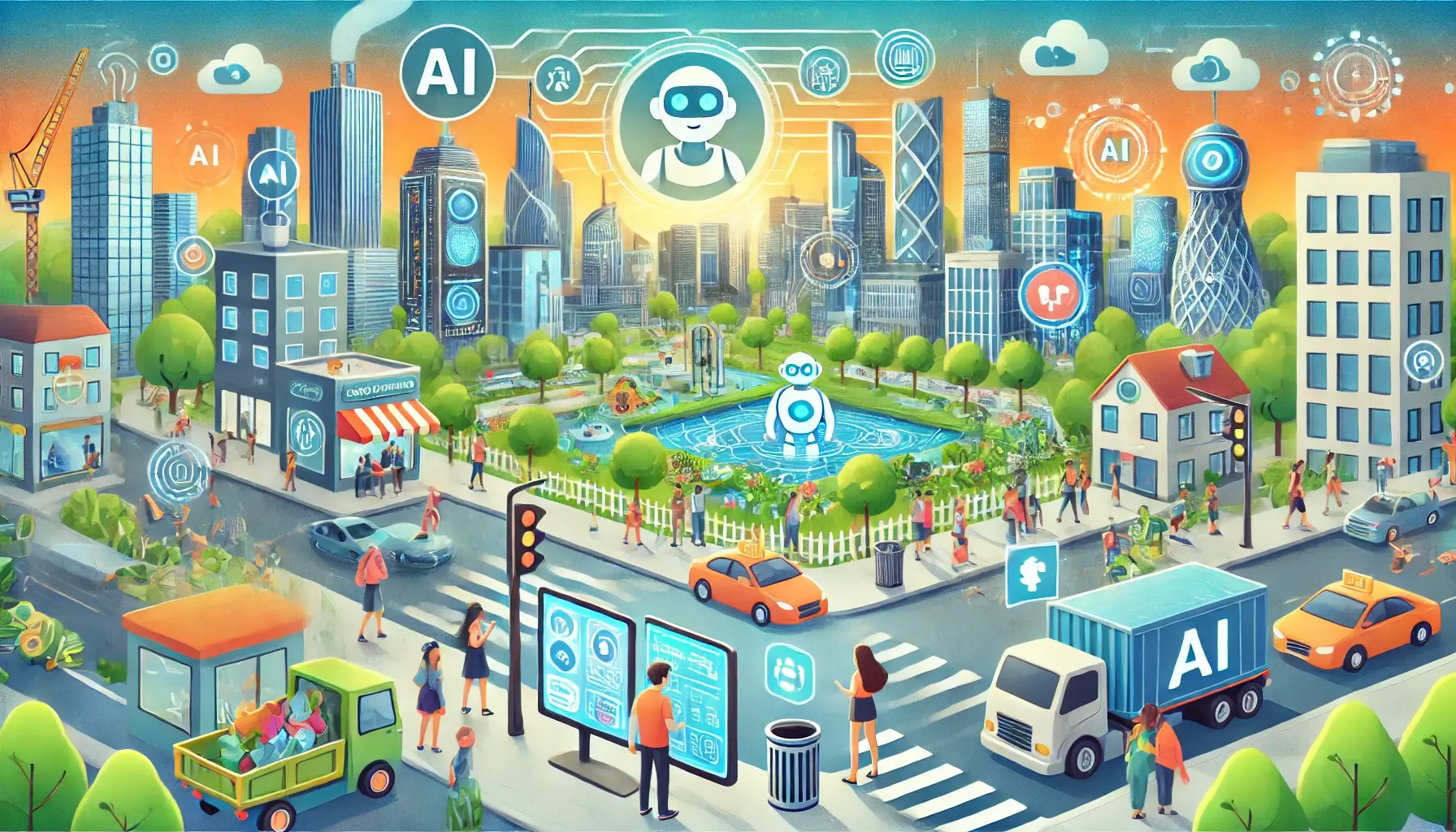- Smart cities leverage technology to improve urban living, and AI is at the forefront of this transformation. Here’s how AI is enhancing urban planning, traffic management, and public services in smart cities.
Urban Planning
- AI can analyze vast amounts of data to optimize city planning.
- Predictive Modeling: AI predicts future urban growth, helping planners design sustainable and efficient infrastructure.
- Resource Allocation: AI identifies areas needing development or improvement, ensuring resources are used effectively.
Traffic Management
- AI helps manage and reduce traffic congestion.
- Smart Traffic Lights: AI controls traffic signals based on real-time traffic conditions, reducing wait times and congestion.
- Predictive Analysis: AI forecasts traffic patterns, helping city planners design better road networks and public transportation routes.
Public Services
- AI enhances the efficiency and quality of public services.
- Waste Management: AI optimizes waste collection routes and schedules, reducing costs and environmental impact.
- Energy Management: AI monitors and manages energy consumption, promoting sustainability and reducing utility costs.
Safety and Security
- AI improves public safety and security in smart cities.
- Surveillance Systems: AI-powered cameras detect unusual activities and alert authorities, improving response times.
- Predictive Policing: AI analyzes crime data to predict and prevent criminal activities, enhancing community safety.
Environmental Monitoring
- AI helps cities become more environmentally friendly.
- Air Quality Monitoring: AI tracks air pollution levels and identifies sources, helping cities implement effective pollution control measures.
- Water Management: AI monitors water quality and usage, ensuring safe and efficient water supply.
Citizen Engagement
- AI facilitates better communication between city officials and residents.
- Chatbots: AI-powered chatbots provide instant responses to citizen queries and service requests.
- Feedback Analysis: AI analyzes citizen feedback from various channels, helping city officials make informed decisions.
Conclusion
- AI is driving the evolution of smart cities by optimizing urban planning, traffic management, public services, safety, security, environmental monitoring, and citizen engagement. As AI technology advances, it will continue to enhance the quality of urban life, making cities more efficient, sustainable, and livable. The integration of AI in smart cities holds the promise of creating urban environments that are better equipped to meet the needs of their residents and adapt to future challenges.

